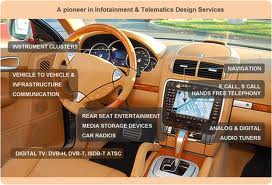In today’s jargon filled world, it’s far too easy to become confused when a sales agent or promotion is touting a brand new term or one you’ve not really touched on before. Telematics to be brief is the amalgamation of two sectors set to deliver a new way to manage and collect data. The two markets are telecommunications and informatics, the first containing satellites, phones, signals and the latter concerned with the science of information, processing and computer systems.
An Overview Of Telematics In Reality To Date
Together these two models have created a symbiotic system termed Telematics, which is utilised in several industries from the military to civilian usage, but primarily we the population would encounter the phrase ‘vehicle telematics’ in our day to day lives. Historically – the past twenty years and to date, the use of telematics, otherwise known as Information and Communications Technology (ICT) has been instrumental in tracking via GPS and satellites for positioning and recording data with regards the location of a vehicle, usually when moving.
In the future Telematics may well refer to a whole ensemble of tracking and running computer systems that operate public operated and public service vehicles automatically. While it is still a few years away, cars are coming online that are much more intelligent and take care of more of the car’s actions due to information received and collated by a computer from data sensors. Without any action from the driver or a third person.
Certain large corporations are dabbling in technology which will allow a car, group of cars or an entire area of cars to be able to drive themselves with no driver input whatsoever. These computer systems will also use telematics, to receive and plot GPS position automatically, calculate distances from other cars, allow cars to communicate with each other and with other road side sensors, calculate risks and dangers ahead and also warn and calculate new speeds based on any accident ahead.

Vehicle Telematics And How It Affects You
As you can envisage from the talk of future telecommunications and informatics systems, ICT is at an early age and there is far more data absorption and chatty sensors to come online, to allow a full suite of super automated information with automated computerised reaction to make our lives easier and less risky. Until that point and in the present age, insurance companies and car manufacturers are teaming up to offer vehicle telematics.
If you haven’t heard about the benefits or the disadvantages of such technology yet, you will within a few years as every new car in Europe will need to be fitted with an Ecall unit. The Ecall box alerts the Emergency Services should your vehicle crash, instantly relaying data and despatching assistance. It is at this point where insurers and others may take advantage of the insistence of a telematics device being positioned by law. As yet only a small percentage of insurers use ICT to better calculate risk by an individual.
Earlier we touched on how ICT is being used for insurance purposes. Even before computers were invented, insurance was calculated using vast and lengthy algorithms to decide how likely it was that you were to fall down an hole or drop dead from eating a wasp. Today’s computers work out a great many of risks enabling insurance companies to better calculate the likelihood of you making a claim and how much money you or a group of like minded individuals may cost the company.
With a specialist vehicle telematics device in your car, truck, fleet vehicle or container this allows an insurance house to build a profile of you, your company, transport routes and your driving habits and set an appropriate range of insurance cover. In turn either reducing your premium, seeing it remain as standard or increased due to the computerised sensors finding you speed a lot, take corners badly, bump into other cars when parking and tend to drive at 2am each morning in the fog of the coast.
A Truly Personalised Insurance Quote
Vehicle telematics or telematics auto insurance is all about a personalised insurance quote for a particular car, vehicle or payload but as already shown, there are pros and cons surrounding the new technology. Inevitably, when groups of risk are broken down into individual actions, our day to day lives become more intrinsically detailed to the onlooker or in this case, the insurer.
A computerised monitored society is on the verge of going live in a bid to reduce insurance costs for those who deserve it, increase road safety and overall, ensure telecommunications and information led computer systems and services, telematics, make life better. The good thing however is that risk will also be separated and ascertained on an individual basis. So regardless of being in a certain risk category, your individual actions combined will make your adjudged risk completely separate to that of someone else.

